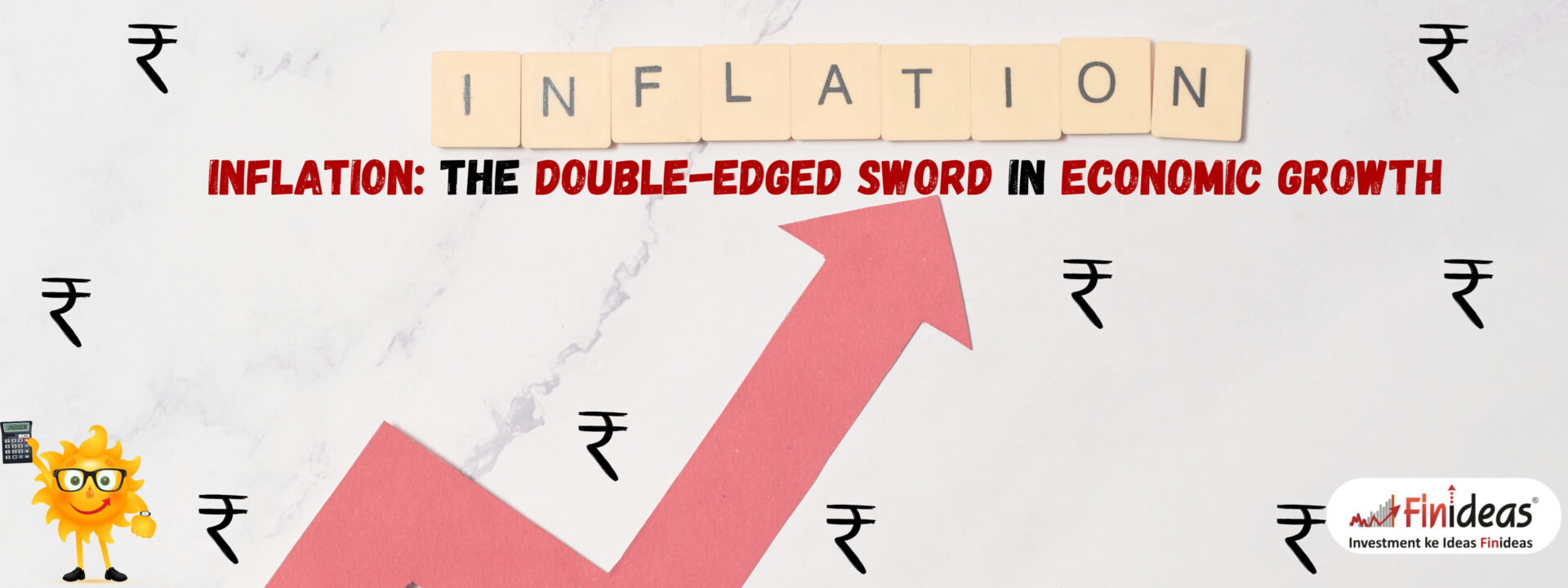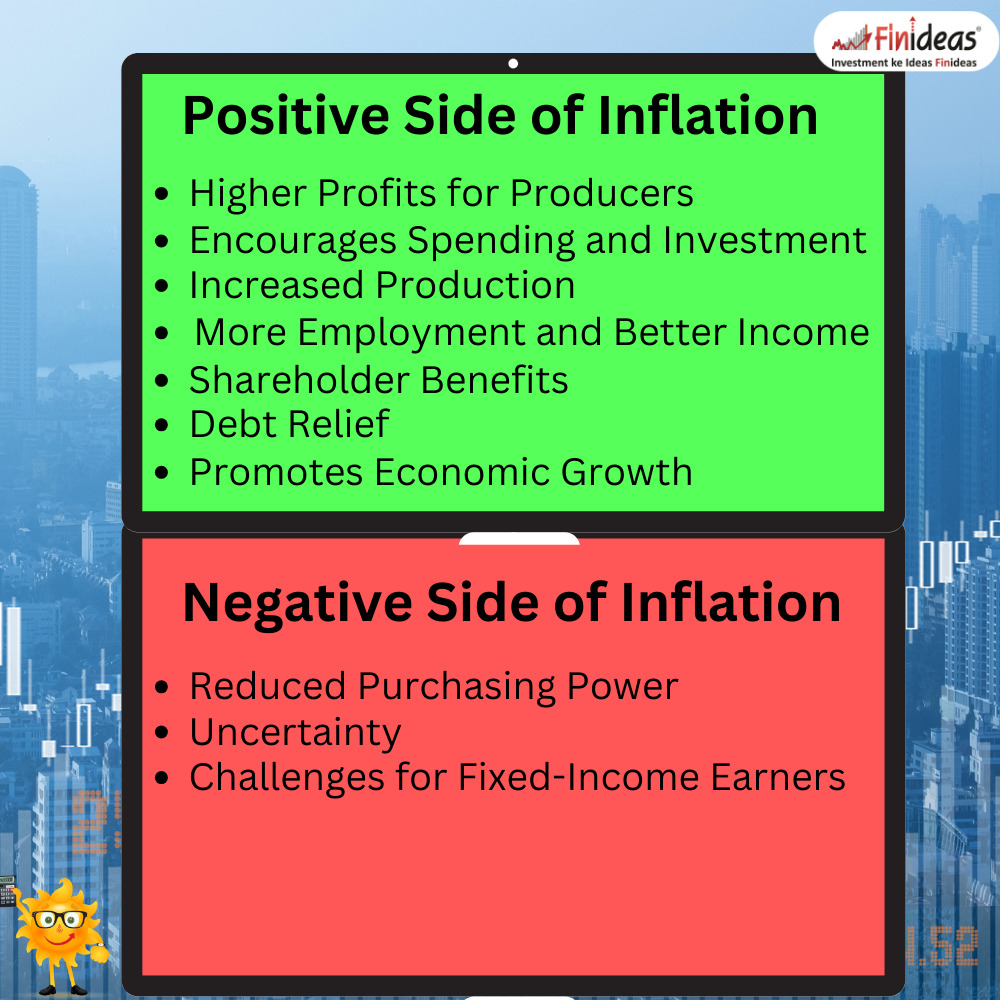Inflation: The Double-Edged Sword in Economic Growth
Introduction:
Inflation, the steady rise in the general level of prices for goods and services, plays a pivotal role in shaping the economic landscape of a country. While central banks strive to maintain a stable and moderate level of inflation, its impacts on the economy are multifaceted. This blog explores the effects of inflation on the economy, delving into both its positive and negative consequences.
Understanding Inflation in India:
To grasp the concept of inflation, consider a scenario where you bought a list of household essentials last month for INR 2,000. This month, the price of a certain food item in the same list rises, increasing the total cost to INR 2,200. This inflationary pressure can force consumers to alter their spending habits, affecting their monthly budgets.
The consumer price index (CPI) in India, a key indicator of inflation, provides valuable insights into the economic landscape. The latest data from the Ministry Of Statistics and Programme Implementation indicates that India’s retail inflation eased to a four-month low of 4.87% in October 2023, down from 5.02% in September. The fluctuating trend, with the highest CPI at 7.79% in April 2022 and the lowest at 4.06% in January 2021, reflects the dynamic nature of inflation. Various factors contribute to inflation, including demand-pull and cost-push inflation, each playing a distinct role in the economic equation.
To beat Inflation there is a Strategy called Index Long Term Strategy you must know about that.
The Positive Side of Inflation:
- Higher Profits for Producers: Inflation can benefit producers as they experience better profits by selling products at higher prices.
- Encourages Spending and Investment: Mild inflation can motivate people to spend and invest rather than hoard money, providing incentives for entrepreneurs and investors.
- Increased Production: Producers, with the right investment, expand their output, leading to an increase in the production of goods and services.
- More Employment and Better Income: Increased production creates a demand for factors of production, including manpower, resulting in higher employment and income.
- Shareholder Benefits: Higher profits during inflation can lead to increased dividends for shareholders, providing them with a rise in their dividend income.
- Debt Relief: Inflation can erode the real value of fixed debt, making it easier for borrowers to repay loans.
- Promotes Economic Growth: Moderate inflation stimulates economic activity, reducing the risk of deflation, which can be harmful to an economy.
The Negative Impact of Inflation:
- Reduced Purchasing Power: Inflation erodes the real value of money, causing consumers to buy fewer goods and services with the same amount of currency.
- Uncertainty: High or unpredictable inflation can create uncertainty, disrupting economic planning and investment.
- Challenges for Fixed-Income Earners: Those on fixed incomes, such as retirees, may struggle to maintain their standard of living as purchasing power decreases.
Conclusion:
Inflation, when maintained within acceptable limits, can be a catalyst for economic growth. Its positive impacts, such as increased production, employment, and investment, contribute to a thriving economy. However, the negative effects, including reduced purchasing power and uncertainty, highlight the delicate balance that policymakers must maintain. Central banks play a crucial role in managing inflation through monetary policy tools, aiming for a stable and moderate inflation rate.
As we navigate the economic landscape, understanding the dual nature of inflation is key to fostering sustainable growth and stability. Balancing the positives and negatives of inflation is essential for creating an environment that promotes economic prosperity and financial well-being for all.
Now, we would like to hear from you. How has inflation affected your personal finances or your business? Share your thoughts and experiences in the comments below.
Happy Investing!
This article is for education purpose only. Kindly consult with your financial advisor before doing any kind of investment.


